Commemorating Women’s History Month

Women’s History Month takes place during the month of March. The celebration began in 1987. Photo courtesy of Shutterstock
March 31, 2023
Beginning in 1987, the month of March has been recognized as Women’s History Month to celebrate women’s achievements and acknowledge the long road we have ahead to reach equality.
Before becoming a month-long celebration, it started in Santa Rosa, CA, as “Women’s History Week” in 1978.
As more cities began adopting “Women’s History Week”, a women’s group named the National Women’s History Project successfully persuaded the government to encourage wider recognition.
In 1980, United States President Jimmy Carter signed a proclamation that officially pronounced the week of March 8th as National Women’s History Week.
The significance of the date is that on March 8, 1857, female textile workers in New York City protested against poor working conditions.
The date continued to symbolize women’s movements in the future.
Following Carter’s proclamation, Congress approved laws that require the sitting president to annually approve that the entire month of March is designated as Women’s History Month.
Each year, the National Women’s History Alliance (NWHA) chooses a different theme for the holiday.
The theme for 2023 is “Celebrating Women Who Tell Our Stories” to commemorate the contributions women have made in film, medicine, advocacy, education, media, and more.
1987: Nancy Pelosi
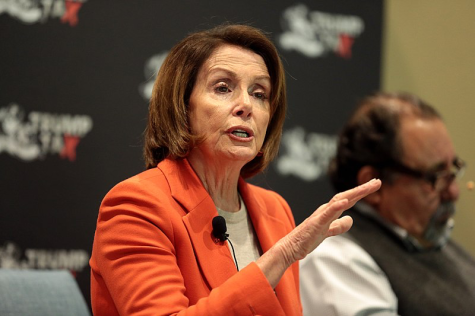
As the daughter of a mayor, former Speaker of the House Nancy Pelosi always got the opportunity to work on her father’s election campaigns and attended her first Democratic National Convention at age twelve.
Pelosi launched her political career in 1987 when she served in the U.S. House of Representatives.
Pelosi paved the way for women in politics as she acquired the position of Speaker of the House in 2007, making her the first and only woman to ever hold this title.
Throughout her speakership, Pelosi led the House to provide healthcare for all through the Affordable Care Act, combated the climate crisis by promoting clean energy, lowered the expense of prescription drugs, and more.
Above all, she demonstrated unwavering determination as she advocated for women’s rights and strove to lift other women to climb the ladder.
Pelosi said, “When I came to the Congress in 1987, there were 12 Democratic women.
Now there are over 90…And we want more.”
Her step down as Speaker of the House in 2022 is not only a loss for politics but a loss to all those who admired her for staying firm in her beliefs when she was shot down in a sea of men.
1990s: Tegla Loroupe

Tegla Loroupe was born on December 9, 1979, in Kenya as one of 25 children in extreme poverty.
Loroupe realized her natural love for running at an early age when she would travel to and from school every day.
Her father did not see her potential and felt she was better suited to working on the plantation fields and caring for her siblings.
She first went to the Kenyan Athletics organization, but they did not support her dream to compete professionally until after she won a cross-country race in 1988.
She trained to be a professional runner and represented her country of Kenya well.
In 1994 and at the 1998 Goodwill Games she won 1st place competing barefoot in the 10,000-meter race.
She made history as she became the first African woman to win the New York Marathon and hold a world record.
Loroupe said, “In a country where only men are encouraged, one must be one’s own inspiration.”
Besides holding world record titles in the running world, she is an advocate for peace through her organization the Tegla Loroupe Peace Foundation.
Loroupe’s mission is to end violence between warring tribes in Kenya and bordering countries by organizing a peace race to put their differences aside for athleticism.
After she petitioned the International Olympic Committee in 2014, Loroupe got the green light to create the first-ever Refugee Olympic Team to compete in the Rio Games.
Ten athletes from different countries came together under Lorupe’s training to perfect their craft and empower others to encourage peace through sports.
She also runs a school for children in undeserving Kenyan communities to have a chance at earning an education amid the war crisis.
She has transformed the war culture in Kenya by giving children opportunities to pursue their passions instead of falling into bad patterns.
2000s: Sampat Pal Devi
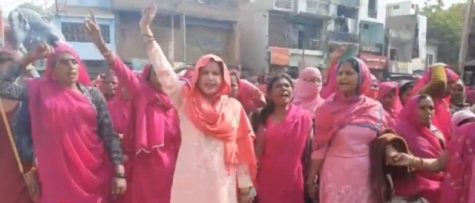
Sampat Pal Devi, the daughter of a shepherd, grew up in Uttar Pradesh, a poor village in Northern India.
At a young age, Devi taught herself how to read and write.
However, at age 12, Devi was married to an ice cream seller whom she had five children with by age 20.
One day in her village, Devi pleaded for a man to stop beating his wife, which resulted in Devi herself being assaulted.
The next day, Devi and five other women found the man and beat him with bamboo sticks, thus forming a new band of empowered women.
By 2006, more women joined the group that “Devi called the “Gulabi (pink) Gang.”
The Gulabi Gang dresses in pink saris to symbolize “womanhood and understated strength.”
The women opposed police intervention knowing that authorities would typically side with males.
The Gulabi Gang attacked abusive men, prevented childhood marriages, and encouraged female education.
According to Al Jazeera, in 2014, the Gulabi Gang consisted of 400,000 women across 11 Indian districts in Uttar Pradesh.
Devi said, “Mind you…we are not a gang in the usual sense of the term.
We are a gang for justice.”
Devi’s work truly does prove that there is strength in numbers and that women should always lift each other up.
2010s: Sarah Deer
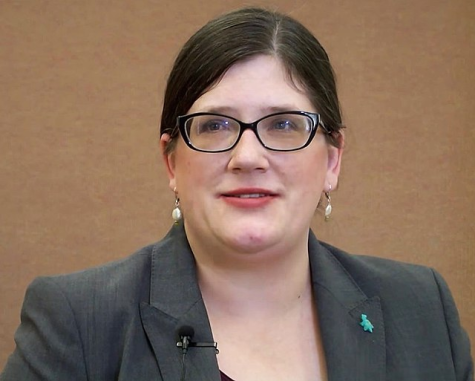
Sarah Deer, a member of the Muscogee (Creek) Nation of Oklahoma, is a lawyer and professor at the University of Kansas.
Deer’s primary goal is to advocate against violence toward Native women.
Deer said, “When you have a system that cannot hold people accountable, what is the message?
The message to perpetrators is ‘I can get away with it,’ and the message to survivors is ‘no one will do anything to help me.’
And … I think that this perfect storm of legal problems explains why Native people suffer from such high rates of violence.”
As an undergraduate student at the University of Kansas, Deer volunteered as a rape crisis advocate in 1993.
She later received a Bachelor of Arts in Women’s Studies and Philosophy from the University of Kansas with honors in 1995.
In 1999, she additionally earned a Juris Doctor degree with a Tribal Lawyer Certificate from the University of Kansas.
One of her greatest accomplishments includes her involvement in the 2013 reauthorization of the Violence Against Women’s Act.
This ruling ultimately recognized Native and non-Native members under tribal jurisdiction in cases of violence against women.
Deer’s contribution enabled the preservation of Native legal practices while ensuring that women were protected from discrimination and harm.
In addition to her legal and professorial career, Deer also wrote multiple books discussing tribal law and gender.
In 2015, Deer wrote a book called The Beginning and End of Rape: Confronting Sexual Violence in Native America.
She won multiple awards for her writing, including the Best First Book award from the Native American Indigenous Studies Association.
Deer was named a MacArthur Foundation Fellow in 2014 and inducted into the National Women’s Hall of Fame in 2019, further cementing her role as a female peacemaker and activist in our world.
2020s: Michelle Yeoh

Michelle Yeoh, a Malaysian-born film star, has recently made history in the film industry.
At the 95th Academy Awards, she became the first Asian woman to win an Oscar for Best Actress for her performance in “Everything Everywhere All at Once.”
The last Asian woman nominated for Best Actress was at the 8th Academy Awards in 1936.
At 60 years old, Yeoh asserts that women in the film industry are consistently looked down upon for their age.
Upon accepting her award, Yeoh said, “This is proof that dreams do come true.
And ladies, don’t let anyone ever tell you you’re past your prime.”
In addition to her Best Actress award, “Everything Everywhere All at Once” was the first film to win five of the top six Academy Awards.
Yeoh asserts that women are capable of running the film industry and that ageism has no place in society.
We Can Do It!
As young women, these female trailblazers inspire us to seek greater opportunities for the advancement of all women.
Supporting feminism has never been about bringing others down, instead, it is about lifting women up to where they are viewed as equal to men.
To run a successful society, all people should be treated equally regardless of gender, race, ethnicity, religion, sexual orientation, etc.
These women have broken gender norms that enable girls like us to fight discrimination and sexism.
In turn, we are empowered to speak out for the voiceless and those who have been silenced.
Local legends
In El Paso, Texas, there is a tremendous amount of women who are using their voices and power to make a difference in the world.
Congresswoman Veronica Escobar, a third-generation El Pasoan, has represented Texas’ 16th Congressional District since 2019.
Dr. Heather Wilson, President of the University of Texas at El Paso, works diligently to provide opportunities for college students by utilizing her experience as former Secretary of the United States Air Force and former U.S. Representative of New Mexico’s 1st Congressional District.
Iris Lopez, co-host of 93.1 Kiss FM’s Morning Show, anchor for KVIA’s Sunday Funday Moments, and founder of ‘Mija, Yes you can’, uses her platform to mentor and assist women in the El Paso community.
These are only a few examples of female icons who are consistently working to inspire all ages of women in El Paso.
Everyday empowerment
Women empowerment should be taking place in all facets of life, especially in professional settings.
At schools, we should be promoting equality through education while also learning from the past.
Joining clubs and organizations that raise awareness for equality is a great way of informing yourself.
At Loretto Academy, the Women Empowering Women Club (WEW) focuses on helping local organizations while identifying injustices that women face in today’s world.
Loretto senior and president of WEW, Mia White, said, “Women throughout history and to this day are given the short end of the stick.
We should recognize the accomplishments of women’s successes because we live in a reality where we are subject to underestimation.
Celebrating the achievements women have made will put silence on the roars of stereotypes, violence, and discrimination of all kinds.
It is also an asset to unity-empowering other women to not only stand up for themselves but to be the change of the future, knowing they have a community right beside them.”
In the workplace, we must guarantee that the environment is safe for all people.
No one should feel uncomfortable around their peers or be discriminated against because of their gender.
In our day-to-day lives, we must support women by believing in them and encouraging them to reach their full potential.
Never feed into the dehumanization of women or into the stereotypes that women are less capable than men.
An effective way to celebrate Women’s History Month is simply to educate yourself and others.
Learn about the history of women’s suffrage, reproductive rights, the pink tax, the pay gap, and other issues that women have faced and continue to face.
The bottom line is that all people deserve respect and are called to be upstanding citizens in our society.
Establishing a greater form of gender equality can only lead to success in all facets of life, which is something that all people deserve.
As we celebrate Women’s History Month, we must remember to honor these women every month of the year for their hard work and dedication to the betterment of the world.
Information courtesy of Al Jazeera, BBC, Fox News, Gulabi Gang, Ms. Magazine, National Women’s Hall of Fame, National Women’s History Alliance, New York Road Runner, The Guardian, and The University of Kansas, World Athletics.



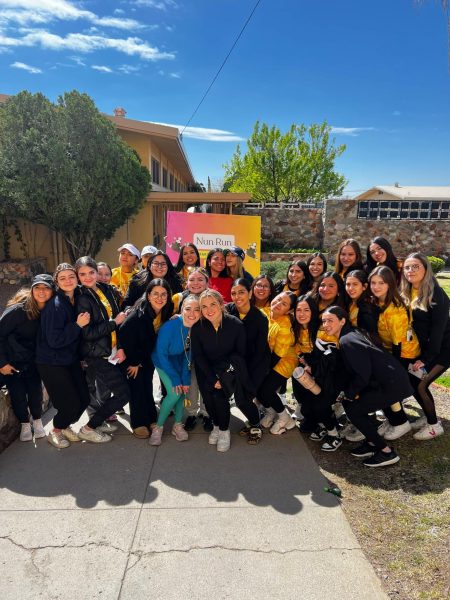
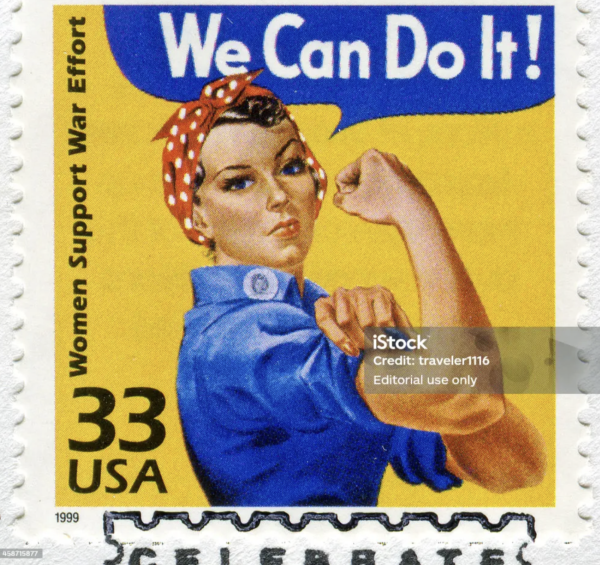



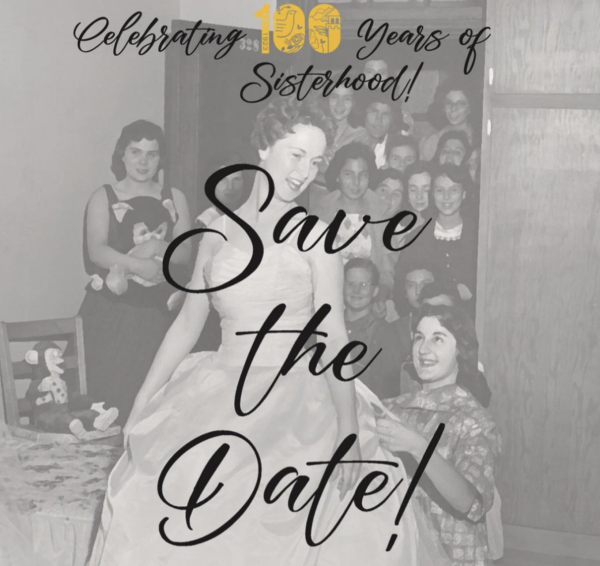


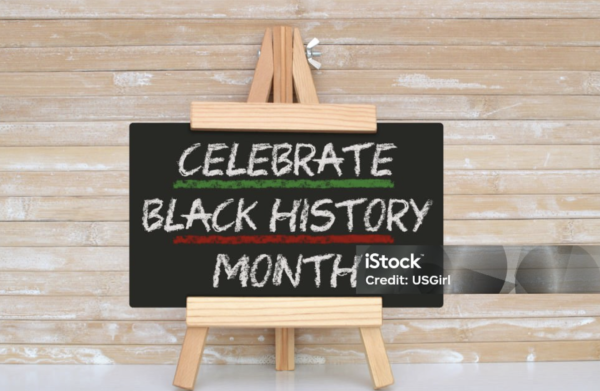

Eva K Ross • Apr 8, 2023 at 8:56 am
Eva Antone Ross Loretto grad 1965 especially appreciated breadth and depth of Women’s History Month entry.